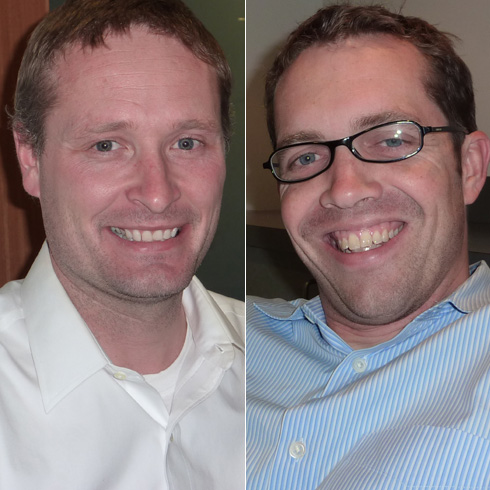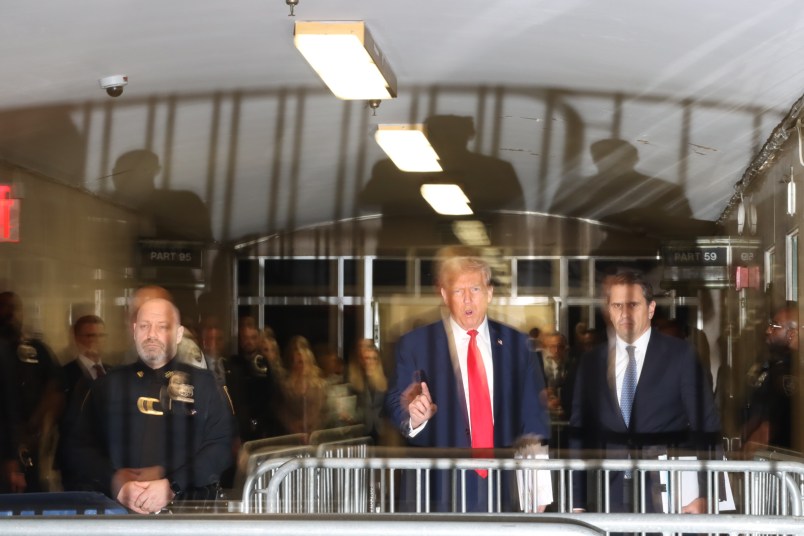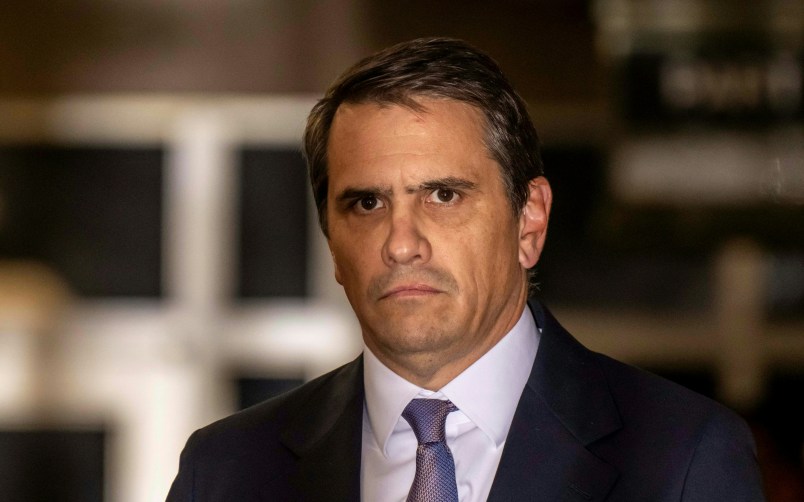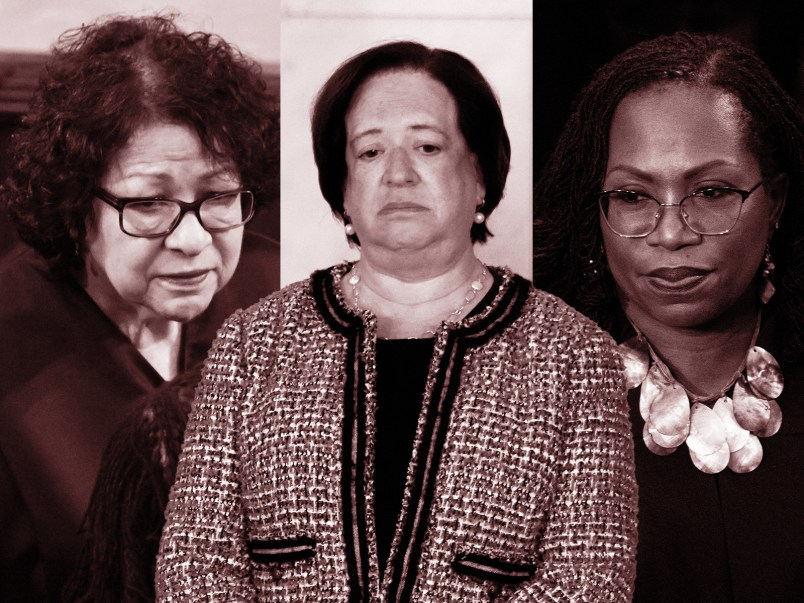This is a partial transcript of TPMDC’s Monday interview with Mitch Stewart, director of Organizing for America, and Jeremy Bird, OFA deputy director. Read the story here.
Christina Bellantoni: One year after the big win, how do you guys feel about things?
Jeremy Bird: Good. This weekend was a big deal for us. It was kind of nice during the same week to have the campaign celebration, watch the documentary, relive some of the campaign and then clear the first big hurdle in health reform.
It feels good about where the country is. We always said the campaign was a chance to get to the point where we can make change and a year later having that same kind of feeling that we had on election day on Saturday was good. Organizationally we feel really really good. … We’re only nine months in and we have been methodically building across the country since January.
We’re up to 49 states states where we have staff.
Bellantoni: What’s the one left?
Bird: Oklahoma. We’ll have somebody there pretty soon.
…
We got on a call on Saturday night with our volunteer leaders from across the country … We heard from them … In Arizona one woman was making calls to constituents in her district to call Mitchell and the woman that she talked to on the phone said ‘It won’t make a difference if I call, they are not going to make a decision based on me calling, but I’ll call anyway.’ So she called, and 15 minutes later Mitchell’s staff put out a release saying they were voting for it. That volunteer called that person back to say ‘I’m sure it wasn’t just your call, but your call and a lot of other calls made a difference and check this press statement out.’ That was pretty cool.
…
It was really recognizing the organization we built across the country. … You can’t just do that by sending out an email or paying some company to do that for you.
…
Bellantoni: [About the losses in Virginia and New Jersey] … You’re getting these victories on issues, as opposed to candidates.
Mitch Stewart: Our number one mission is to support the president’s agenda. Our volunteers certainly understand that’s the most critical thing that we can do at this juncture.
…
We view our role here as trying to provide our volunteers and supporters information and we’ll continue to do that. At the end of the day, sure we would have liked to win both those states, but our main mission is to support the president’s agenda. And since June 6 we’ve been focused 95 percent of our efforts on health care.
Bird: Our volunteers in Virginia, they recognize it wasn’t their efforts. When you have a loss like that it doesn’t have a lot to do with field organizing on the ground. It’s not common wisdom that you can make up 20 points on the ground.
DNC spokesman Hari Sevugan: OFA’s primary focus is to advance the president’s agenda. If you advance the president’s agenda that’s going to translate politically and help Democrats throughout the country. And frankly keeping people engaged on the issues in an off year is going to translate in a mid-term year. They are going to continue to be engaged.
Bellantoni: The last time I wrote about OFA … I looked at the Obama coalition being Republicans and independents, this differing group and not just Dems so you can’t just target them with the Dem message. What are you seeing from the volunteers? Are Republicans that voted for him getting involved?
Stewart: We don’t have specific stats on partisanship with our volunteers but we go at great lengths to make sure that we are messaging to everyone. That’s why you see OFA not take some of the same language or rhetoric that Hari does when he has the DNC hat on because we want to make sure that Republicans and independent supporters feel very comfortable with OFA. You’ll see that continue through 2010. We might provide information to our supporters to let them know how their representatives have or have not voted, but we’re going to match the tone and tenor of the president and he’s made it a priority to reach out to everyone.
Bellantoni: What are you seeing as far as donations come in? Are people responding to those messages the way they did during the campaign?
Stewart: Trying to compare anything we do now to 2008 is an apples to oranges comparison … The thing that is most interesting is not only donors but volunteers as well, folks who came into the office for the very first time. Jeremy and I were on this campaign almost from its inception and … to find somebody who is coming into the office now or engaging now, to us, given all the work we did in the primary and the general election, it’s really inspiring to see that. These folks are motivated based on issues.
…
Bird: We made a commitment that we wouldn’t put any staff on the ground or try any operation that we weren’t able to fund for the long term. …
Bellantoni: I’m reading Plouffe’s book now … he talked about Obama wanting to make sure we don’t just have a staff with volunteers, we want staff to support volunteers.
Stewart: We’re using the same sort of principles that we had on the campaign as far as respecting and empowering volunteers so they feel like they own a piece of that. … Volunteers are giving up 25 to 30 hours per week and they are our organizers. They own our efforts in their specific geographic turf in the country.
Bird: We have staff in 49 states, but even given that we’re nowhere near where we were in 2008. If we were a staff-only operation our impact both nationally and what members are hearing from constituents back home would be greatly diminished.
When you have fewer staff their whole job is to recruit people that really are the organization. We treat our volunteer community organizers as the most important piece of the organization … just like the campaign they are really treated like staff and treated as the bedrock of what we do.
Stewart: Every campaign, well they should, wants to recruit volunteers and call them a precinct captain or a leader.. but oftentimes the folks who volunteer to be a leader aren’t the best leader. There is a literally a testing phase to becoming a community organizer. Oftentimes they don’t know they are being tested and they are told it’s up to you to put a house party or a canvas together and frankly you judge how that goes. You have to earn it and you have to sit down and accept the role. It’s not a title in name only, we expect work.
Bird: It’s a training process … first is they are getting involved, second is they are hosting their own event in some capacity and then they are recruiting other people to host their own events. It’s not just ‘Hey you’re working for us, we make a commitment to you that we’re going to support you. You’re going to be able to have access to call lists just like a staff member. You’re going to get on conference calls the second after the vote is over just like a staff member.
Bellantoni: Where do you go from here? … If OFA volunteers are really passionate about (Stupak amendment) do you give them free reign to (push that message)? How do you balance targeting Democrats versus just targeting Republicans?
Stewart: It’s not like Jeremy and I can push a button and every single volunteer across the country is going to do exactly what we asked them to. It’s not a homogeneous group of individuals. By and large they have the same goal but a lot of them have very different perspectives. … What we have found is these volunteers are so invested in this effort, we saw on Saturday night they were so enthusiastic about the input and the impact they had. People have the same goal that the president does which is to get health insurance reform done now, and get it done this year. We still have folks who are volunteering for us who want single payer. We cherish and we honor their work, but they understand the president has a different take on it.
Bird: You always have in community organizing a two-way conversation, it’s important for us to be open to that to treat them as adults. A lot of time you hear the world volunteer and everybody expects they know less about the process, they don’t know how to do it as well, but in fact some of them are smarter than Mitch and I, have better ideas on how to organize. We have to listen to them on tactical stuff, we have to listen to them on messaging …
Bellantoni: Are those conversations going on that you might call out the 39 Democrats who voted against this and say ‘We want to convince you’?
Stewart: Strategically speaking we’ll do whatever we can to achieve the goal of health care passage but there’s still another bite at the apple. We want to make sure from our perspective our volunteers still feel like they had real impact because they did. There’s still an opportunity for that specific member to vote yes.
…
Bellantoni: It seemed like the messages were overwhelmingly positive … the thank-you rallies, the tweet campaign, do you find that is more effective? What are your volunteers finding?
Stewart: Our volunteers relish the opportunity to say thank you. It means that all the work that they did up to that point paid off. … A lot of the folks that came to the campaign in the first place was they wanted to change the way Washington works … A lot of our supporters got involved in this because they wanted to stop that sort of rhetoric
Bird: It’s nice to have carrots in politics every once in awhile.
It’s good for our volunteers and to have a member walk into the airport coming home and see a group of people that actually recognize, first are engaged and even know there was a vote on it, which too often in our past no one knew, and second know where they stood on it and know how much work went into getting them there.
Stewart: You know what would be an interesting story? You should look and see what the ratings were for C-Span on Saturday.
Bellantoni: We wrote this story! I didn’t write the post but my co-worker did … it was the biggest they’ve had since inauguration.
…
Stewart: When Jeremy and I started this process, we didn’t want to speak in Washingtonian and we still work very very hard not to, but we also didn’t want to get caught up in the machinations of the legislative process and talk about cloture, but our supporters demanded it … They want to know the next step, they are following this so closely. … They were asking Jeremy and I about reconciliation and that process.
…
Bellantoni: After covering the campaign so long I just assume by now that with you guys everything is intentional and tracked – how do you guys choose whether I’m getting the email from Joe Biden or the president or you or a real person?
Stewart: There’s a whole strategy behind that, you want to make sure that it stays current. If they get an email from me twice a week, I become stale. Our people love to hear from the president. That’s why they are here. They like to feel they have a personal connection to him and he does as well. Having that direct communication with supporters and volunteers is critical. At important points in time that’s who he talks to.
…
Bellantoni: I know you guys aren’t thinking about reelection yet but do you feel like you’ve been able to keep that ‘We’re still Washington outsiders’ feel when you can see the Capitol outside your window?
Stewart: We haven’t had any discussions about 2012, but as far as do we still feel like we are independent of the beltway thinking, yes. If it’s just Jeremy and myself, the answer might be no. We hear from staff and volunteers every single day who have a very different perspective from what the conventional wisdom is here and that’s extremely helpful.
Bellantoni: You were in Iowa, you were in South Carolina you were in Chicago, is it harder to collect those outside voices than it used to be?
Stewart: It isn’t for us. We keep our ear pretty close to what folks are saying.
Bird: We do a fairly good job, we can always do better, of getting out to states. … We have a call with our staff but it’s more important to get on calls with organizers and volunteers, all sorts of stuff so we can hear from all different segments of people. It’s important that we make sure we’re most focused on that than that building over there.
…
Bellantoni: You guys did one fundraising campaign that was asking people to please pledge $1 a day until health care passes, and it seemed very self-serving obviously.
Bird: Trust me we don’t want it to continue. We’re not trying to protract the health care debate. (Laughter) Clearly if somebody thought they wanted to give $1 a day and thought the legislative process would end tomorrow they ware able to get off that list and end their contribution. But most people actually wish this was over too. You get more and more people giving every day. We have no interest, like the president, in having this go on beyond 2009. We want to get it done there’s a lot of people counting on us.
…
Bellantoni: Are you guys getting enough time with the president to keep yourselves energized and engaged? Even in hard times like the losses Tuesday?
Bird: Mitch and I don’t want time with him, if we get time with him we want him to get on the phone with volunteers. … What motivates us now is just hearing from volunteers talk about the work they do it helps toward grounding us in reality. People are not used to being effective on legislation in Washington, D.C. or having any impact on it. … That’s changing with a lot of people. They saw people who in the states in June said they were very much probably a no vote, become a yes vote. Even if it wasn’t their member they saw other members do that and they heard from volunteers on the phone and I think it gives them a lot of hope.”









